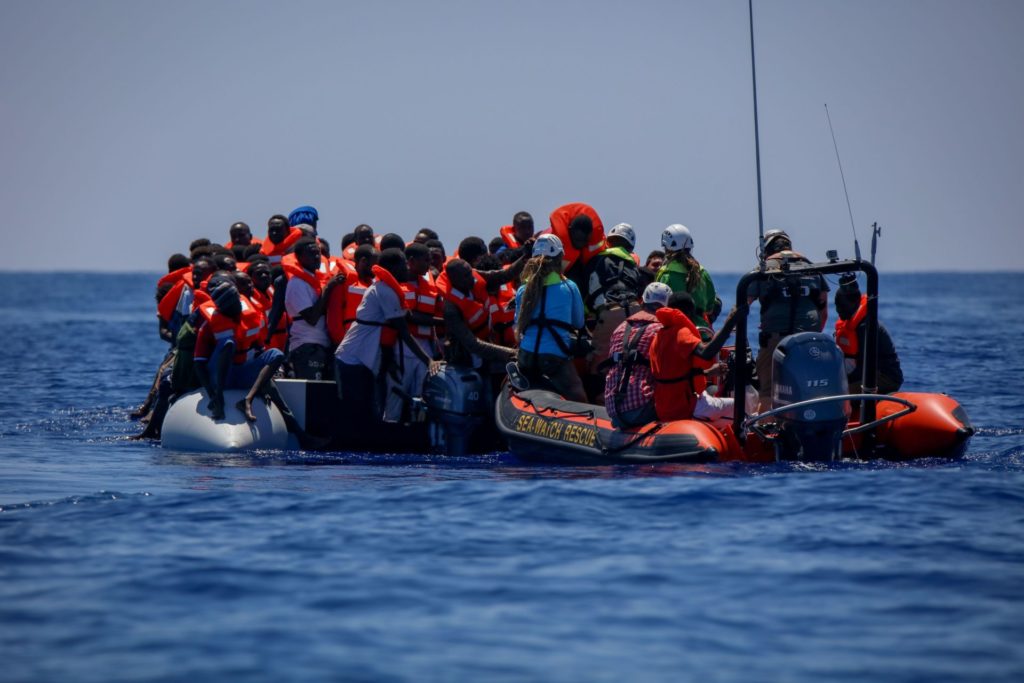The European Commission took note on Friday evening of the resignation with immediate effect of Fabrice Leggeri, the Executive Director of the European Border and Coastguard Agency (Frontex), after he had filed his resignation letter on the previous day to the Management Board of the agency.
In its statement, the Commission did not comment on the reasons for his resignation and only stated that it is a priority for the Commission to have in place a strong, effective, and well-functioning European Border and Coast Guard. “Frontex fulfils a critically important task to support Member States manage common European Union external borders, and to uphold fundamental rights in doing so.”
Leggeri, a French national who has been in charge of Frontex since 2015, wrote in his resignation letter that, “I give my mandate back to the management board as it seems that the Frontex mandate on which I have been elected and renewed in June 2019 has silently but effectively been changed.”
In fact, he was forced to resign after a year-long investigation by the European Anti-Fraud Office’s (OLAF) against him and two other staff members of Frontex of alleged pushbacks of migrants seeking asylum in EU member states and other internal irregularities at his office. At a press conference yesterday, Commission spokespersons denied that his mandate or job description had been changed.
He lost the trust of the European Parliament already in December 2020 after a hearing at the Civil Liberties Committee (Liber) about pushbacks by the Greek coast guard with the tacit agreement of seconded Frontex staff.
But this is not the whole story leading to his resignation. In June 2021, the European Court of Auditors (ECA) published a critical audit report about the management of Frontex. According to the auditors, Frontex had not been sufficiently effective in helping member states in managing the EU’s external frontiers.
The auditors also doubted that Frontex would be able to fulfil its new mandate and enhanced role which it has received in 2019 despite the huge increase in its resources. Frontex will increase “exponentially” its operational staff to 10 000 by 2027 and its annual budget to around €900 million – all this according to political decisions without any impact assessment.
At the time of the on-going audit and the allegations of pushbacks of migrants, the Commission continued to express its full trust in the agency after it had been cleared in an internal investigation. About a year ago, Ylva Johansson, Commissioner for Home Affairs, said at a press conference, “We don’t accept any cheap bashing of Frontex.” At that time, the OLAF investigation of Frontex had already started.
The Management Board of Frontex published its conclusions on Friday, following a two-days extraordinary meeting.
It accepted the resignation of the Executive Director without any explanation and wrote that it decided that launching further proceedings against him in connection with the OLAF report is not necessary anymore, “since the outcome of these proceedings will no longer affect the position of the Executive Director”.
Asked if any legal proceedings against him were possible, depending on the conclusions in the confidential OLAF report, a spokesperson of the Commission told The Brussels Times that it had no further information and could not speculate about this.
The spokesperson added that the Commission oversees the work of EU agencies. “For this reason, two representatives of the Commission are represented in the management board. The Frontex Regulation also requires that the Commission is kept regularly informed of the Agencies’ activities.”
The Commission spokespersons could not tell at yesterday’s press conference what had gone wrong at Frontex but apparently it was not because of one individual, even if he was at the head of the agency and is expected to demonstrate managerial responsibility, a key concept in the Commission’s financial control system. It was rather a matter of institutional capacity.
The spokespersons asserted that the Commission had not expressed trust in the former Executive Director but in the agency itself. They underlined that Frontex deals with perhaps the most sensitive policy area in the EU and is facing human, political and organisational challenges.
Over the past year, the Commission has stepped up its support and advice to Frontex to ensure the full implementation of its double mandate to protect EU’s borders while respecting asylum rights. To this end, the Commission initiated several extraordinary Management Board meetings dedicated to governance issues and fundamental rights. Still, the Director was forced to resign on Thursday.
M. Apelblat
The Brussels Times

